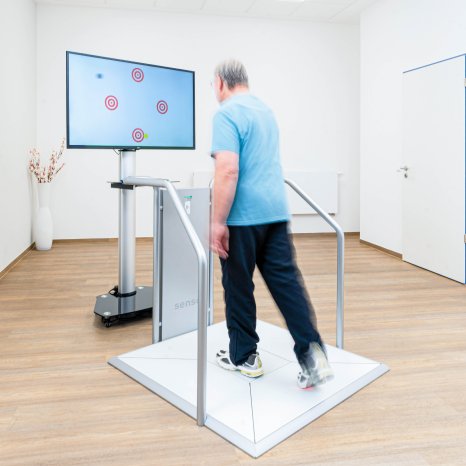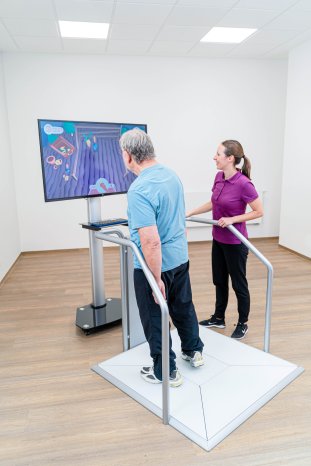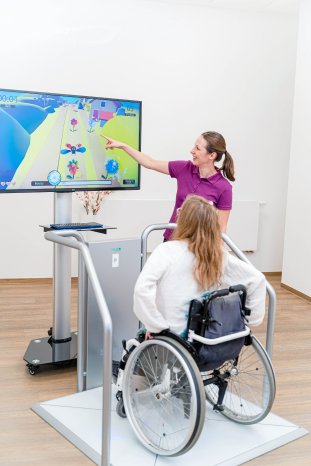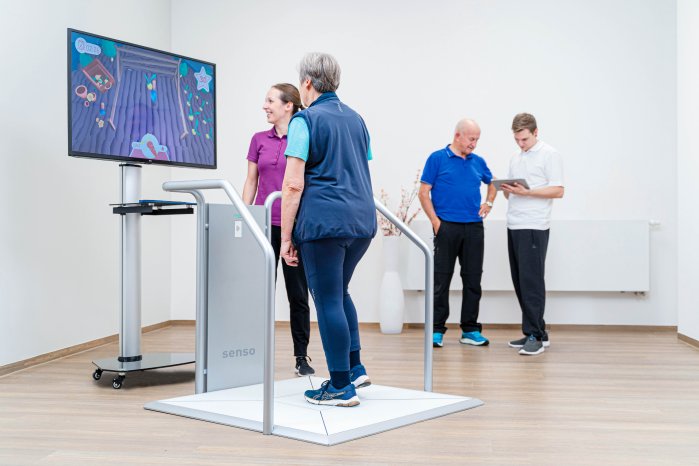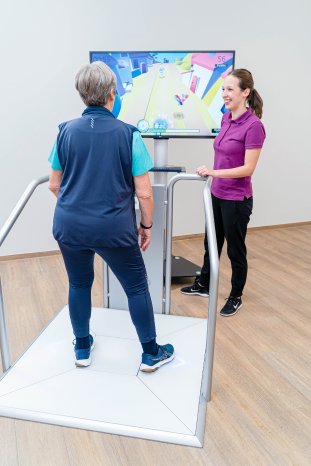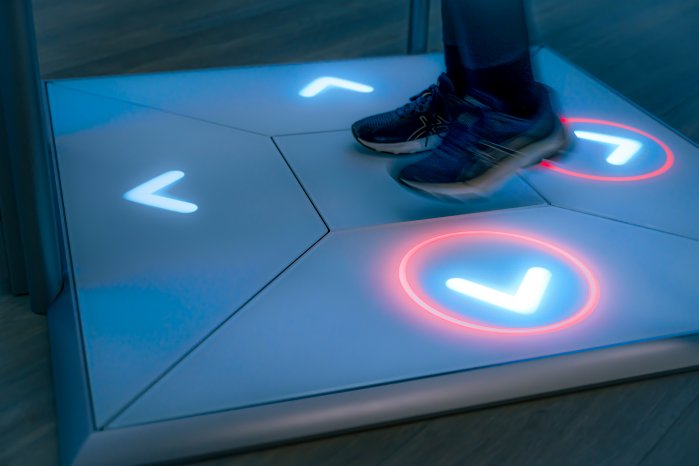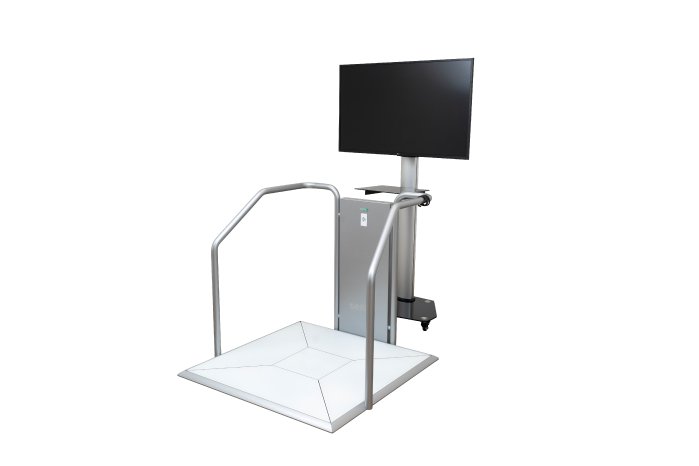It all started with the doctorate of Dr. Eva van het Reve (Dividat AG) at Zurich University (ETH Zurich). The aim of her research there was to validate a revolutionary training approach for patients with cognitive-motor impairments, which is a combination of movement and thinking tasks. However, it quickly became apparent that no training equipment was available on the market for this. Necessity became a virtue and the first prototype of today's senso was developed.
The first research results with the senso exceeded all expectations. So the decision for subsequent research projects and the further development of the prototype to a market-ready product was the obvious next move. After going through several stages of development and numerous other studies, today's senso is a unique training device that leaves nothing to be desired in terms of scientific evidence and technical requirements.
Joris van het Reve (CEO Dividat AG): "We are very pleased to be working with a long-term partner, THERA-Trainer, who has recognised the genius of this training approach. Thanks to THERA-Trainer's international sales network, we are able to offer our patients around the world optimal therapy with the THERA-Trainer senso."
Body and mind are the supporting pillars for safe movements
All movements in our everyday life can only be carried out by means of fine interaction between the musculoskeletal system, the sensory perceptions and the central nervous system. If there are disturbances in one of these subsystems or in their interaction, targeted movements can no longer be carried out. Movement disorders of the lower extremities in particular can lead to falls with serious health consequences, which also put a real strain on the health system. The best protection against serious consequences is optimal prevention.
Conventional therapeutic approaches mainly focus on strengthening the musculoskeletal system and either partially or completely ignore the integration of cognitive functions in controlling movement. However, the latest research results show that, in addition to having strong muscles, muscle control also plays an essential role in fall prevention. How important cognitive training is in relation to fall prevention can be illustrated using the example of dementia patients. This patient group has a significantly increased risk of falling, which is almost exclusively due to the impairment of cognitive functions.
Peter Kopf (CEO THERA-Trainer) explains it this way: "Imagine you are standing at a busy crossroads. You’re holding a bag full of shopping. There’s a crowd of people next to you. It's loud, it's hot and you're exhausted. Due to your age, your vision and hearing are limited. Crossing the street safely would require your undivided attention on your gait. It is precisely in these situations that more falls occur, since you are flooded with external stimuli and you can no longer concentrate on the essentials (crossing the road safely). This is where the THERA-Trainer senso comes into play, as it specifically combines and trains the combination of movement and simultaneous cognitive stimuli."
The key to the proven high training efficiency of the THERA-Trainer senso lies in precisely this combination of thinking and movement tasks. The unique combination simulates the multi-tasking requirements of everyday life in a playful way. The resulting synergy effects at the neuronal level ascribe a significantly higher effectiveness to this training approach than to other conventional types of training. This particularly benefits groups of people who have limitations in cognitive functions, the musculoskeletal system or their interaction due to the aging process, illnesses or accidents.
Current research has shown a significant reduction in the risk of falling in patients with cognitive or motor impairments after training with the THERA-Trainer senso, an improvement in cognitive functions (reaction time, memory etc) as well as a strengthening of the musculoskeletal system. Training with the senso goes way beyond static, weight-shifting exercises. Due to its unique design, stepping exercises can also be practiced and the flat access means it can also be used with a wheelchair. The highly accurate sensors in the THERA-Trainer senso also allow clinical balance tests (sway tests) to be carried out.
An enrichment for patients and clinics
The rehabilitation market is facing unprecedented challenges. An aging population combined with staff shortages and inevitable cost saving measures are forcing therapists and rehabilitation clinics to rethink training concepts and break new ground. New technology can play a key role in this.
This paradigm shift must not have a negative impact on the treatment of the patient, who must continue to be the focus of all decisions. The help of targeted use of technology such as the THERA-Trainer senso, will not just enrich the treatment, but will also relieve therapists. In addition to the outstanding training effects, the senso also impresses in everyday clinical practice with its ease of use and the challenging nature of its training. After just a short briefing, patients are able to train independently on the device by means of user identification via an RFID wristband and are kept motivated by playful training content and the display of the progress they’re making. Thanks to an intelligent algorithm, the difficulty of the training session is constantly and automatically adapted in line with the patient's ability. In this way, a challenging level of training can be guaranteed and overloading can be avoided without the constant monitoring of the therapist.
Sabine Lamprecht (Physiotherapist M.Sc. Neurorehabilitation, HSH Lamprecht GbR): "With the THERA-Trainer senso, I was even able to motivate patients who actually couldn't be motivated."
You can find out more about THERA-Trainer at: www.thera-trainer.com
